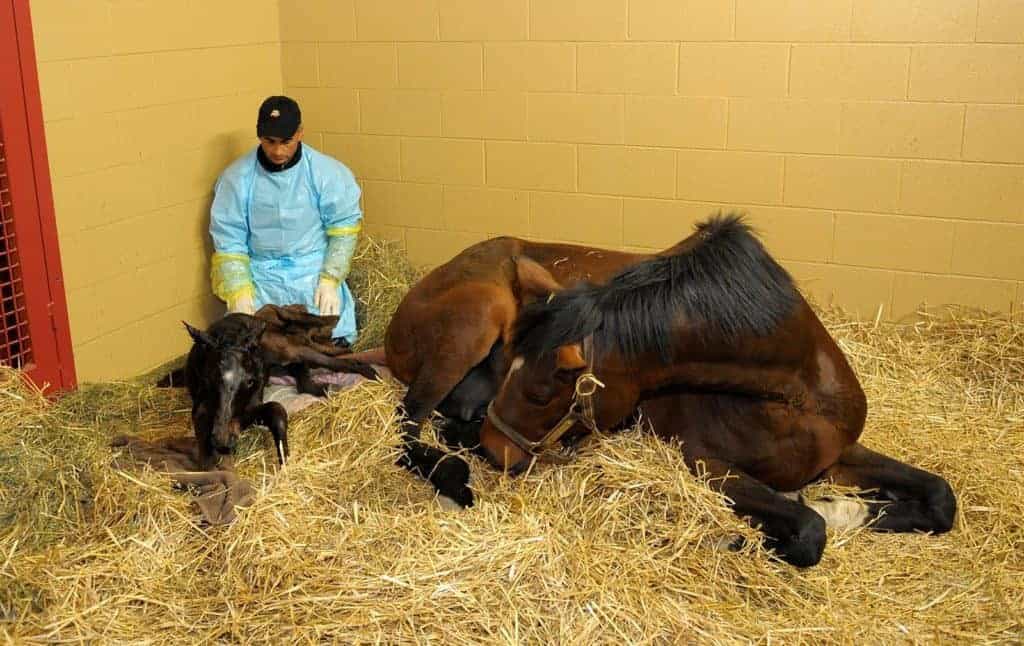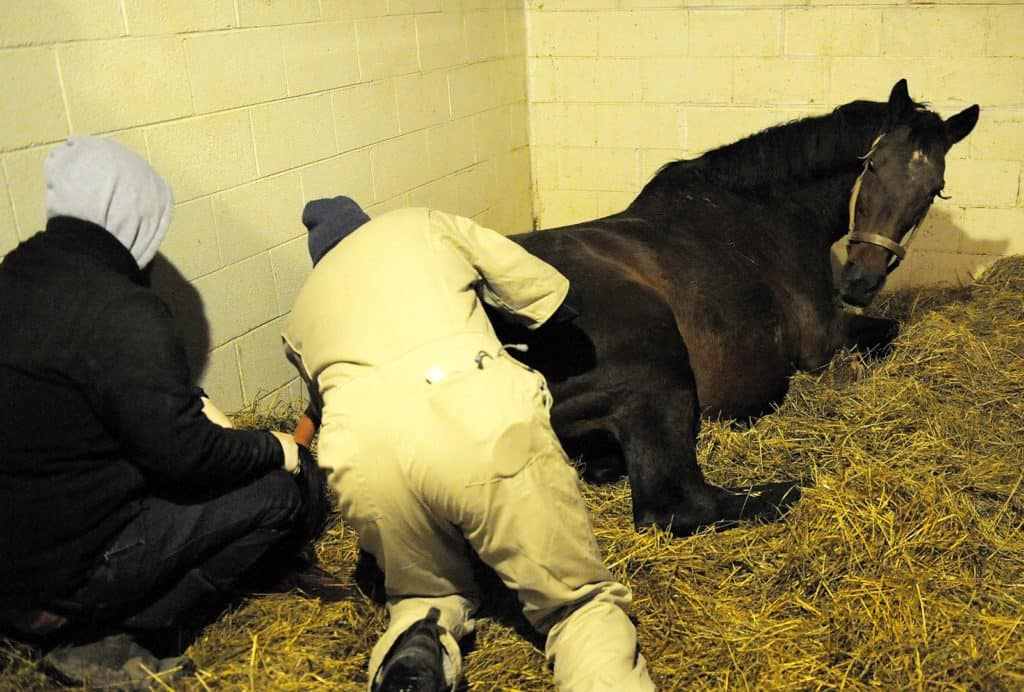
When Broodmares Colic
Post-foaling colic is a significant threat for mares. Dr. Anthony Blikslager describes what to look for and how to respond if your mare colics following foaling.

Post-foaling colic is a significant threat for mares. Dr. Anthony Blikslager describes what to look for and how to respond if your mare colics following foaling.

University of Pennsylvania’s Dr. Michelle Linton describes the how a normal foaling should progress.

Nocardioform placentitis affects late-gestation mares, causing abortion, stillbirth, or foals born alive but compromised.

Researchers compared foaling prediction methods and recommend using a combination of available techniques.

Breeding a mare is exciting and not without challenges. Learn about stallion selection, breeding soundness, and more!

Spring is an exciting time for many breeders, as it likely marks the last trimester of their mares’ pregnancies. Due to the rapid changes that occur in the last few months of gestation, it is imperative that owners monitor mares closely.

University of Kentucky’s Dr. Barry Ball defines the high-risk pregnancy and its causes and offers management options. Learn about fescue toxicosis, umbilical torsion, premature placental separation, and more in this information-packed lecture.

Equine reproduction specialist Dr. Etta Bradecamp overviews obstacles related to breeding performance mares and stallions.

Many breeders opt for a combination of the available options to give themselves the best chance to accurately predict when a mare will foal.

Reproductive specialist Dr. Pat McCue of Colorado State University describes instances when a mare needs help during labor.
A mare should be brought inside at night beginning 30 to 45 days before her due date. This is done for two reasons. The first is so she can become comfortable with the surroundings and feel that the foaling stall is a safe, private place. Mares that are not at ease might delay foaling and prolong their labor until they feel more secure. Such a delay can lead to complications.


Dr. Kim Abernathy of the Kentucky Lake Equine Hospital talks about C-sections in mares.
Stay on top of the most recent Horse Health news with
"*" indicates required fields